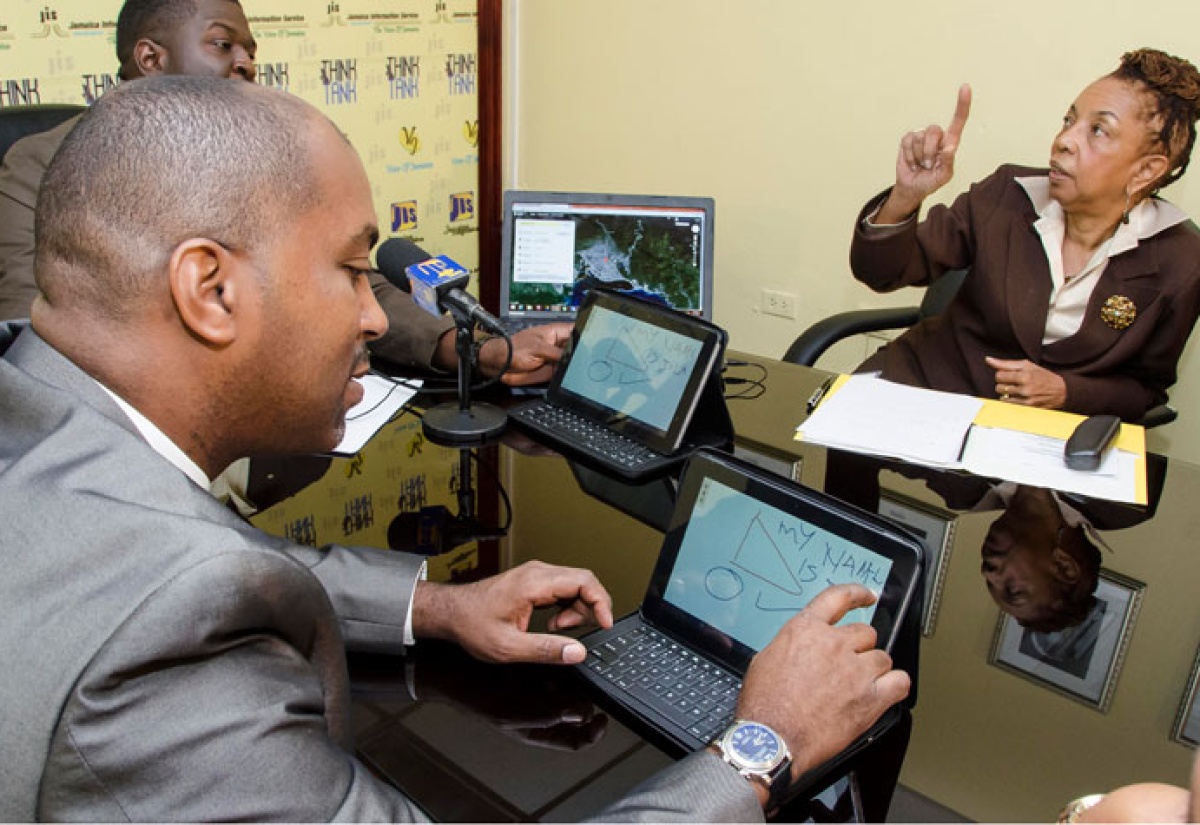Don’t Try To Steal Computer Tablets
By: , August 15, 2014The Key Point:
The Facts
- The security features allows for the devices to be remotely disabled.
- The instruments can be traced to within inches of their location, making it easy for the police to retrieve them and apprehend the persons in possession of them illegally.
The Full Story
As the Government prepares to roll out the Tablets in Schools pilot project in September, the Ministry of Science, Technology, Energy and Mining, is ensuring that security features are installed on the devices, which will protect them in the event of loss or theft.
Minister of State in the Ministry, Hon. Julian Robinson, said the security features allows for the devices to be remotely disabled. In addition, the instruments can be traced to within inches of their location, making it easy for the police to retrieve them and apprehend the persons in possession of them illegally.
Mr. Robinson, who was addressing a JIS Think Tank on Thursday, August 14, said his recommendation to anyone who is contemplating stealing one of the tablets, is to “forget it.”
“The tablet is of no value or use to someone, who may want to steal it. If someone steals the tablet it can be tracked and traced using GPS technology, so you can find out where the person is physically and it can narrow it down to a building and you can also shut down the tablet and wipe off the content. So, we want to make it very clear to persons, who may have nefarious intentions, that there is really nothing to gain by trying to steal one of these tablets,” he stated.
Approximately 25,000 tablets will be issued to students in 38 schools from the infant to tertiary level during the pilot project, which is being funded by the Universal Service Fund in the amount of approximately $1.2 billion.
Mr. Robinson informed that the students will be allowed to take home the tablets to facilitate doing their assignments and to get familiar with them. He is advising parents to immediately report loss or theft of the devices.
“We recognize it is a risk. We are conscious of it and there is a special security committee that is anticipating and addressing these issues… we have to try and mitigate all the concerns as best as possible and that is why we have placed a lot of emphasis on the security aspect so persons know there is no value in stealing these tablets,” he pointed out.
The State Minister said that the project is part of Government’s investment in “our children’s education for the future,” and expressed the hope that issues of theft will not arise. “But we are preparing for it just in case,” he stated.
A demonstration by one of the tablet providers, GeoTech Vision Enterprise Limited, showed how a tablet could easily be isolated and shut down by remote, rendering the instrument useless, even if the person has a code or has technical knowledge of the instrument.
GeoTech’s Technical Service Manager, Dean-Ray Grant, explained during the demonstration that the tablet can only be used again after verification by the school, the Ministry and the provider, who will then re-activate the instrument.


